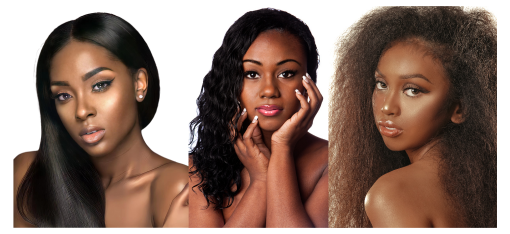Navigating Hyperthyroidism-Related Hair Loss: Tips, Insights, and Misconceptions - PART 3
Coping with Hyperthyroidism-Related Hair Loss
Hair loss can be a difficult symptom to cope with for individuals with hyperthyroidism. It can take a toll on a person's emotional and psychological well-being.
In this section, we will explore different ways to cope with hyperthyroidism-related hair loss. We will discuss tips for styling hair to minimize the appearance of hair loss, how to cope with hair loss, the psychological impact of hair loss in hyperthyroidism patients, and the emotional toll of hyperthyroidism-related hair loss.
Tips for styling hair to minimize the appearance of hair loss
Tips for styling hair to minimize the appearance of hair loss can be helpful for those with hyperthyroidism-related hair loss. Here are some ways to achieve a fuller-looking head of hair:
-
Choose the right hairstyle: Picking the right hairstyle can make a significant difference in the appearance of thinning hair. Layered haircuts or those with textured ends can create the illusion of volume. Shorter hairstyles can also help to create the appearance of more hair. Styling hair in a side parting can also help to hide thinning hair in the center part of the scalp.
-
Highlights: Adding highlights to hair can also help to give the appearance of more volume. Lightening the hair color can create the illusion of fuller hair, but it is essential to avoid over-processing, which can cause further damage to the hair.
-
Volumizing products: Using volumizing shampoo and conditioner can help to give hair more body. Styling hair with a blow dryer and round brush can help create volume as well. Applying a volumizing mousse or spray to the roots can also help to create the appearance of fuller hair.
-
Avoid tight hairstyles: Tight hairstyles such as braids, ponytails, or buns can put stress on the hair follicles, causing them to become damaged and break. This can lead to further hair loss, so it is best to avoid such hairstyles or wear them loosely.
By following these tips, individuals with hyperthyroidism-related hair loss can achieve a fuller-looking head of hair while waiting for medical treatment to take effect. However, it is essential to remember that these tips are not a permanent solution, and it is vital to seek medical advice for proper diagnosis and treatment of hyperthyroidism-related hair loss.
How to cope with hair loss due to hyperthyroidism
Hair loss due to hyperthyroidism can be a distressing symptom to cope with. However, there are several ways to manage and cope with this challenge. Coping with hair loss due to hyperthyroidism requires patience, self-care, and the right hair care routine.
One of the first steps in coping with hair loss due to hyperthyroidism is understanding the underlying condition. Hyperthyroidism occurs when the thyroid gland produces too much thyroid hormone, which can result in several symptoms, including hair loss. Treating hyperthyroidism may help reduce or stop hair loss.
In addition to treating hyperthyroidism, there are several other ways to cope with hair loss due to hyperthyroidism. One way to cope is by using hair loss treatments, such as minoxidil, which is a topical solution that can help promote hair growth. However, it is important to consult a healthcare professional before using any hair loss treatments.
Another way to cope with hair loss is by using hair loss concealers, such as hair fibers or sprays. These products can help conceal bald spots or thinning areas, giving the appearance of fuller hair.
Maintaining a healthy hair care routine is also crucial in coping with hair loss due to hyperthyroidism. Using gentle hair care products and avoiding harsh chemicals or heat styling can help prevent further hair loss. Additionally, regularly trimming hair and avoiding tight hairstyles can help reduce stress on hair follicles.
Finally, seeking support from friends, family, or a therapist can help with the emotional toll of hair loss. It is important to remember that hair loss does not define a person's worth, and seeking support can help with feelings of anxiety or depression related to hair loss.
In addition to using hair loss treatments and concealers, another option to consider is a wig. Wigs are a great way to quickly and easily change up your hairstyle, and can also help conceal hair loss.
At Lengthsrq, we offer 100% virgin human hair wigs that are specifically designed to provide comfort and style. Our wigs are made with high-quality materials, ensuring a natural and realistic look. With a variety of lengths, styles and colors to choose from, you can find the perfect wig to fit your needs and preferences.
But we don't just stop at providing wigs - we're also here to offer support and guidance throughout your hair loss journey. Our team of experts can help you find the best wig for your needs and provide tips on how to care for and style your wig. We understand how challenging hair loss can be, and we're committed to making this process as seamless and stress-free as possible.
The Emotional Impact of Hair Loss in Hyperthyroidism Patients and Coping Strategies
Hair loss can have a profound psychological impact on individuals with hyperthyroidism, who may already be experiencing other physical symptoms of the condition. Losing hair can be an unexpected and distressing side effect of hyperthyroidism that can affect an individual's emotional well-being and self-image.
For many people, hair is not just an accessory but an integral part of their identity, and losing it can be a traumatic experience. This is especially true for women who are socialized to prioritize their appearance. Hair loss can affect their sense of femininity and attractiveness, leading to a loss of confidence and self-esteem.
The psychological impact of hair loss can be further exacerbated by societal pressures and unrealistic beauty standards. Many people with hyperthyroidism-related hair loss may feel self-conscious about their appearance and avoid social situations, leading to feelings of isolation and depression.
It's essential to find ways to cope with these negative feelings and emotions. One way is to seek support from loved ones, who can provide a listening ear and a sense of comfort and reassurance. Joining a support group or online community of others who are experiencing hair loss due to hyperthyroidism can also be beneficial as it can provide a sense of belonging and connection to others who understand what it's like to go through this.
Another helpful resource is speaking with a mental health professional, such as a therapist or counselor, who can provide tools and techniques to cope with negative emotions. Cognitive-behavioral therapy (CBT), for instance, can help individuals identify and challenge negative thought patterns and develop coping strategies to manage negative feelings.
Ultimately, it's important to remember that hair loss is a symptom of hyperthyroidism and not a reflection of one's beauty or worth. This mindset shift can be challenging, but it can help individuals separate their self-worth from their appearance and find a sense of peace and acceptance.
Coping with hair loss can be difficult, but seeking support from loved ones, a support group, or a therapist can help with emotional healing. Talking to others who have experienced hair loss due to hyperthyroidism can be helpful.
Additionally, engaging in activities that boost confidence and self-esteem, such as exercise or pursuing hobbies, can help individuals with hyperthyroidism-related hair loss regain their sense of control and normalcy. Participating in physical activities has been shown to improve mental health by reducing stress and anxiety. Pursuing hobbies or learning new skills can help individuals build confidence and a sense of accomplishment, which can counteract the negative feelings associated with hair loss.
Frequently asked questions about hyperthyroidism-related hair loss
Readers may have questions about hyperthyroidism-related hair loss. Here are some frequently asked questions and their answers:
Q: What causes hair loss in hyperthyroidism patients?
A: Hyperthyroidism can cause an overproduction of hormones, which can lead to hair loss. The excess hormones can disrupt the hair growth cycle, causing hair to fall out prematurely. You can read more on this in our "PART 1" covering this topic.
Q: Can hyperthyroidism cause alopecia?
A: Alopecia, or hair loss, is a possible symptom of hyperthyroidism. When the thyroid gland is overactive, it can disrupt the normal growth and shedding of hair, leading to hair loss or thinning.
If you are experiencing hair loss or thinning, it's important to consult with a healthcare provider to determine the underlying cause and appropriate treatment options.
Q: Can hyperthyroidism-related hair loss be reversed?
A: In many cases, hair loss due to hyperthyroidism can be reversed with proper treatment. Once thyroid hormone levels are back to normal, the hair growth cycle can return to its normal pattern.
Q: How long does it take for hair to grow back after hyperthyroidism-related hair loss?
A: It can take several months for hair to grow back after hair loss due to hyperthyroidism. The length of time it takes for hair to grow back can vary depending on factors such as the severity of the hyperthyroidism and how long the thyroid hormone levels were imbalanced. Consistent treatment and healthy lifestyle habits, such as eating a balanced diet and managing stress, can help promote hair growth.
Q: Will hair loss due to hyperthyroidism always grow back?
A: While hair loss due to hyperthyroidism can often be reversed with treatment, in some cases, hair loss may be permanent. If hair loss is due to scarring on the scalp, hair may not grow back in the affected area.
Q: What can I do to cope with my hyperthyroidism-related hair loss?
A: Tips for Maintaining Positive Body Image and Self-Confidence
Hair loss can take a toll on one's self-esteem and body image. Coping with hair loss can be a challenging journey, but there are some strategies you can try to maintain a positive outlook and boost your self-confidence.
1. Seek support: As we discussed earlier in this blog, talking to family, friends, or a therapist can help you process your feelings about hair loss and provide emotional support.
2. Experiment with hairstyles: Try out different haircuts, wigs, and hair accessories to find a style that makes you feel confident and comfortable.
3. Focus on self-care: Taking care of yourself can boost your mood and make you feel more confident. This can include getting enough sleep, eating a healthy diet, and exercising regularly.
4. Practice positive self-talk: Challenge negative thoughts about yourself and your appearance by focusing on your positive qualities and achievements.
5. Engage in activities that make you feel good: Pursuing hobbies or activities that you enjoy can help boost your mood and self-confidence.
6. Consider joining a support group: There are many support groups for people with hair loss, where you can connect with others who are going through similar experiences.
7. Seek professional help: If you are struggling with depression, anxiety, or other mental health concerns related to hair loss, consider seeking professional help from a therapist or counselor.
Common Misconceptions About Hair Loss and Hyperthyroidism
Hair loss is a common symptom of hyperthyroidism, but there are several misconceptions about the condition and its effects on hair. Here are some common misconceptions about hair loss and hyperthyroidism:
-
Hair loss is only a symptom of hypothyroidism. This is not true. While hypothyroidism (an underactive thyroid) is commonly associated with hair loss, hyperthyroidism (an overactive thyroid) can also cause hair loss. In fact, both conditions can disrupt the normal hair growth cycle, leading to hair loss.
-
Hair loss due to hyperthyroidism is permanent. This is also not true. In most cases, hair loss due to hyperthyroidism can be reversed with proper treatment. Once the thyroid hormone levels are back to normal, hair growth should resume, and any lost hair should grow back. However, it may take several months for hair to fully grow back, and in some cases, hair may not grow back as thick or healthy as it was before.
-
Only women experience hair loss due to hyperthyroidism. This is a misconception. While women are more likely to experience hair loss than men, both men and women can experience hair loss due to hyperthyroidism. In fact, some studies suggest that men may be more likely to experience hair loss due to hyperthyroidism than women.
It's important to be aware of these misconceptions about hair loss and hyperthyroidism to better understand the condition and its effects on hair. If you're experiencing hair loss and suspect it may be related to hyperthyroidism, it's important to talk to your healthcare provider and get proper treatment.
The importance of a healthy diet for managing hyperthyroidism-related hair loss
Eating a well-balanced diet that is rich in essential nutrients can help support overall thyroid health, which can in turn help prevent hair loss. Hyperthyroidism can cause an increase in metabolism, which can lead to a higher nutrient requirement. Therefore, it is important to make sure that you are getting enough of the essential nutrients your body needs to maintain healthy hair.
The role of biotin in managing hyperthyroidism-related hair loss: Biotin, also known as vitamin B7, is a water-soluble vitamin that is essential for maintaining healthy hair, skin, and nails. Biotin is involved in the production of keratin, which is a protein that makes up the structure of hair. Studies have shown that biotin supplements can improve hair growth and reduce hair loss in people with hair loss disorders, including hyperthyroidism-related hair loss. However, it is important to talk to your healthcare provider before taking any supplements.
The role of iron in managing hyperthyroidism-related hair loss: Iron is an important mineral that is essential for hair growth. Iron deficiency can lead to anemia, which is a condition characterized by low levels of red blood cells. Anemia can cause hair loss because it leads to a decrease in oxygen delivery to hair follicles, which can impair their growth. Therefore, it is important to eat a diet that is rich in iron or take iron supplements if your healthcare provider recommends it.
The role of zinc in managing hyperthyroidism-related hair loss: Zinc is a mineral that is important for maintaining healthy hair, skin, and nails. Zinc helps to maintain the structure of proteins in the body, including keratin, which is essential for healthy hair growth. Studies have shown that zinc supplements can help improve hair growth and reduce hair loss in people with hair loss disorders, including hyperthyroidism-related hair loss. However, it is important to talk to your healthcare provider before taking any supplements.
The role of vitamin D in managing hyperthyroidism-related hair loss: Vitamin D is a nutrient that is essential for maintaining healthy bones, but it also plays a role in hair growth. Vitamin D helps to regulate the hair growth cycle by stimulating hair follicles. Studies have shown that low levels of vitamin D are associated with hair loss disorders, including hyperthyroidism-related hair loss. Therefore, it is important to eat a diet that is rich in vitamin D or take vitamin D supplements if your healthcare provider recommends it.
-
Include a variety of nutrient-dense foods in your diet, such as:
- Fruits and vegetables
- Whole grains
- Lean proteins
- Healthy fats
-
Limit your intake of:
- Processed foods
- Sugary snacks and drinks
- Saturated and trans fats
-
Incorporate foods that are rich in vitamins and minerals that support hair health, such as:
- Biotin: found in eggs, nuts, and whole grains
- Iron: found in leafy greens, beans, and red meat
- Zinc: found in oysters, nuts, and seeds
- Vitamin D: found in fatty fish, egg yolks, and fortified foods
-
Drink plenty of water to stay hydrated, as dehydration can affect the health of your hair.
By following a healthy, well-balanced diet and incorporating these specific foods, individuals with hyperthyroidism-related hair loss can support their overall health and promote hair growth.
Tips for maintaining healthy hair with hyperthyroidism
In addition to managing your hyperthyroidism through medication and lifestyle changes, there are some tips for maintaining healthy hair:
- Be gentle with your hair. Avoid pulling or tugging on your hair, and use a wide-toothed comb or brush to prevent damage.
- Use gentle hair products that don't contain harsh chemicals or sulfates that can strip your hair of natural oils.
- Limit your use of heat styling tools like hair dryers, curling irons, and straighteners. If you do use them, use a heat protectant spray and keep the heat on a low setting.
- Consider using hair supplements that contain vitamins and minerals that support hair health, such as biotin, iron, and zinc. However, it's important to talk to your doctor before starting any supplements, as some may interact with your medication or exacerbate your hyperthyroidism symptoms.
- Protect your hair from the sun and harsh weather conditions by wearing a hat or scarf.
- Deep conditioning treatments: Once a week, treat your hair to a deep conditioning treatment to help lock in moisture and repair damage. You can use a store-bought treatment or make your own by combining a nourishing oil like olive or avocado oil with honey and applying it to your hair for 30 minutes before washing it out.
When to see a healthcare provider for hyperthyroidism-related hair loss
If you are experiencing hair loss and suspect it may be due to your hyperthyroidism, it's important to see your healthcare provider. They can evaluate your thyroid function and determine if your hair loss is related to your hyperthyroidism or another underlying condition. Your healthcare provider can also recommend treatment options, such as medication or lifestyle changes, to help manage your hyperthyroidism and promote hair regrowth. Additionally, if your hair loss is causing emotional distress, your healthcare provider can refer you to a mental health professional or support group.
We hope this blog post has provided you with helpful information about Hyperthyroidism-Related Hair Loss. We encourage you to interact in the comments to provide additional information or support for others who may be managing hyperthyroidism. Thank you for reading!












Leave a comment